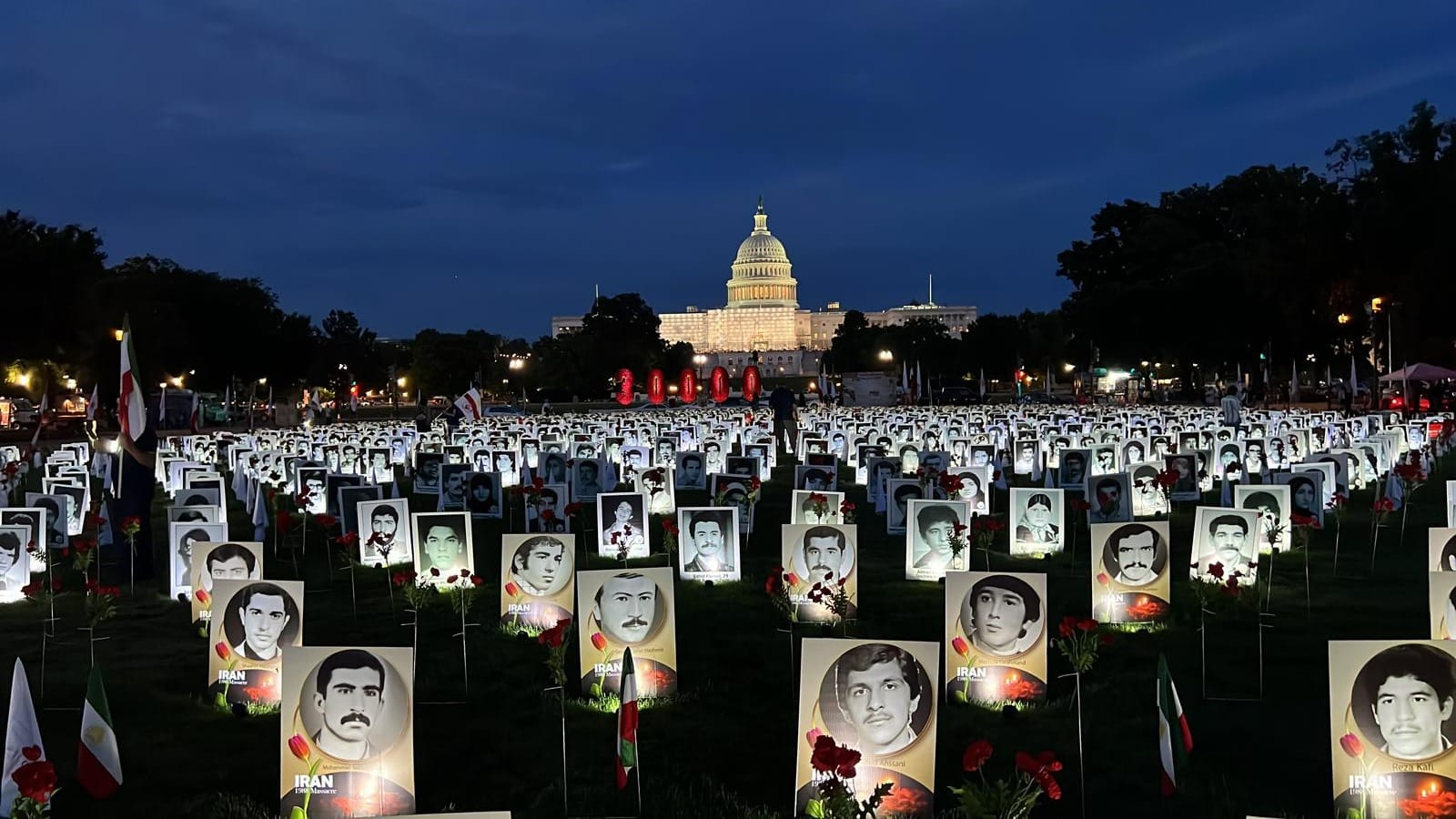On July 14 a court in Sweden issued a historic ruling in convicting a former Iranian regime official to life in prison for his role in the 1988 prison massacre that left thousands of political prisoners dead across Iran’s prisons. This is a first as Iran’s regime has rarely faced any scrutiny for these mass deaths.
Considering the fact that U.S. President Joe Biden emphasized that his administration puts “Human Rights at the Center of U.S. Foreign Policy”, it will be up to President Biden to deliver when it comes to influencing global norms for affixing accountability.
The Stockholm court ruling has been welcomed by the international community, including the United Nations High Commissioner for Human Rights, the UN Special Rapporteur for human rights in Iran, mainstream media, political, cultural, and academic dignitaries alongside human rights advocates, not to mention international human rights organizations, such as Amnesty International.
Such a reaction, although long overdue when it comes to reports on Iran’s human rights record, could potentially signal the beginning of a major pivot needed for the global community when its comes to humanitarian issues in Iran, the regime’s domestic crackdown and human rights violations, and especially the country’s justice movement.
“UN Human Rights Chief @mbachelet hails historic conviction of former Iranian official by Swedish court for his role in 1988 summary executions of political opponents. States should use universal jurisdiction to bridge accountability gap for serious crimes & ensure truth+justice,” reads a tweet posted by the UN Human Rights Office.
Unfortunately, despite the harsh lessons of ignoring human rights records owing to considerations of power politics, the West continues to demonstrate an ambivalent approach.
Iran’s ayatollah especially took advantage of the eight years of former U.S. president Barack Obama, from cracking down on the Iranian people’s uprising in 2009, and the 2015 nuclear deal that provided Tehran access to at least $152 billion in cash and credit.
In this regard Amnesty International issued an important statement with a significant call to all countries across the globe. “With this first ever ruling against an Iranian official, albeit in a European court, they have finally witnessed an Iranian official held to account for these crimes. This must be followed by all states exercising universal jurisdiction to criminally investigate all other former and current officials in Iran against whom there is evidence of involvement in past and ongoing crimes against humanity, including Ebrahim Raisi, the country’s President,” the statement reads in part.
President Raisi was a member of the regime’s “Death Commissions” responsible for determining the fate of political prisoners in 1988. They held arbitrary courts that lasted mere minutes for each prisoner, sending thousands to be executed for their political beliefs.
Welcoming the life sentence handed down to ex-Iranian regime official Hamid Noury, UN Special Rapporteur on the situation of human rights in Iran, Javaid Rehman, described the verdict as “a landmark and important leap forward in the pursuit of truth and justice for a dark chapter in Iranian history”.
Rehman went on to emphasize “denial, despite substantive evidence and impunity” could no longer go tolerated, and referred to Sweden’s principle of universal jurisdiction, allowing the country’s judges to try serious crimes, regardless of where they were committed.
“I urge other States to take on similar investigation and prosecution of serious human rights violations in Iran using principles of universal jurisdiction,” said Rehman. “There is a serious accountability gap for past and present gross violations of human rights law, and national courts in other States play a fundamental role in filling that gap”, he stated further.
Most of the victims of Iran’s 1988 prison massacre were members and supporters of the Iranian opposition People’s Mojahedin Organization of Iran (PMOI/MEK). Many survivors and witnesses of the massacre, including current MEK members and supporters, provided key testimonies in the 92 sessions of the court procedures that continued through the course of nine months and resulted in Noury’s sentencing. The PMOI/MEK and its vast network of supporters across the globe have been instrumental in the unprecedented transparency seen in this trial that brought justice to this former Iranian regime official.
If the West – which has always championed the cause of democracy and Human Rights – truly places human rights at the center of its foreign policy, it is high time to act and hold the regime in Iran accountable for their ongoing human rights violations against the Iranian people, and hundreds of millions of others across the globe.
There are growing calls on the U.S. administration to deny Raisi a visa to enter the U.S. as he intends to attend this year’s United Nations General Assembly in September. Iranian Americans held a gathering organized by the Organization of Iranian American Communities (OIAC) in Washington in front of the U.S. Congress on August 12 reiterating the fact that Raisi is best known for his direct role in the summer 1988 prison massacre of over 30,000 political prisoners. A number of Members of Congress are also joining this campaign to deny Raisi a visa to the U.S.

